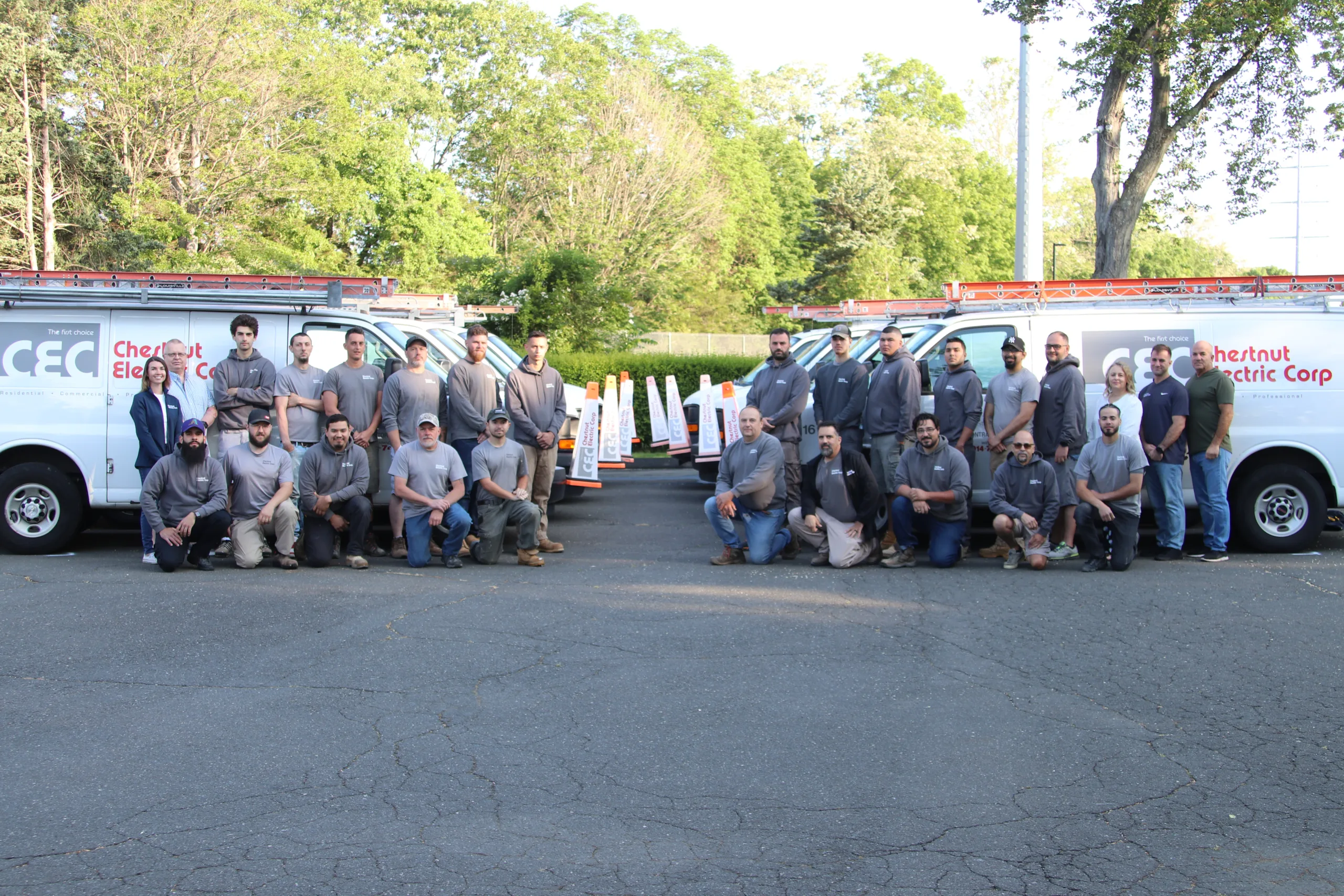How to Prevent Electrical Fires in Older Fairfield County Homes: Tips for Wilton, Greenwich, Darien, and New Canaan
Older homes in Fairfield County, particularly in charming towns like Wilton, Greenwich, Darien, and New Canaan, are prized for their character, architecture, and history. However, with age often comes outdated electrical systems that can pose significant safety risks, including the threat of electrical fires.
Electrical fires are not only dangerous but can also cause severe damage to your property. Fortunately, with proactive measures, you can significantly reduce the risk. Here’s a guide to help homeowners in these historic towns protect their homes and families.
Why Older Homes Are at Higher Risk for Electrical Fires
Homes built decades ago were designed with different electrical standards than what’s required today. The increased demand for electricity from modern appliances, electronics, and smart home devices can overwhelm outdated systems.
Common Issues in Older Fairfield County Homes:
- Knob-and-Tube Wiring: Prevalent in homes built before the 1950s, this outdated wiring lacks the safety features of modern systems.
- Aluminum Wiring: Used in the 1960s and 70s, it’s prone to overheating and can be a fire hazard.
- Outdated Panels: Older electrical panels may not support the electrical load of today’s appliances.
- Lack of GFCI Outlets: Ground Fault Circuit Interrupters (GFCIs) are crucial for preventing electrical shocks and fires, especially in moisture-prone areas.
1. Schedule a Professional Electrical Inspection
For homeowners in Wilton, Greenwich, Darien, and New Canaan, the first step in preventing electrical fires is to have your home’s electrical system inspected by a licensed electrician.
What to Expect During an Inspection:
- A thorough examination of your wiring, outlets, panels, and appliances.
- Identification of outdated components that need upgrading.
- Recommendations for improving safety and efficiency.
Regular inspections ensure potential hazards are identified and addressed before they become serious problems.
2. Upgrade Outdated Wiring
If your home still has knob-and-tube or aluminum wiring, it’s time to upgrade. These systems are not designed to handle the electrical loads of modern households and can easily overheat.
Benefits of Upgrading:
- Increased safety: Modern wiring materials are better insulated and less likely to cause fires.
- Improved electrical capacity: Your system can handle high-demand appliances without tripping breakers.
- Higher home value: Electrical upgrades make your home more appealing to buyers and insurers.
3. Install Arc Fault Circuit Interrupters (AFCIs)
AFCIs are designed to detect electrical arcing, a leading cause of electrical fires. Unlike standard breakers, AFCIs shut down circuits before arcing can cause a fire.
Where to Install:
- Bedrooms: Electrical arcing is common in these areas due to aging outlets or wiring.
- Living Rooms and Kitchens: These areas often have a high concentration of electrical devices.
Connecticut’s building codes may require AFCIs in new construction, but older homes should also be upgraded for safety.
4. Replace Old Electrical Panels
Older electrical panels, especially those with fuse boxes, may not provide adequate protection against electrical fires. Even some older circuit breaker panels may be prone to failure.
Warning Signs of an Outdated Panel:
- Frequent tripped breakers.
- Buzzing or crackling sounds near the panel.
- Panels that feel warm to the touch.
- Scorch marks or discoloration around the panel.
Upgrading to a modern panel can handle today’s electrical demands and reduce fire risks.
5. Install GFCI and AFCI Outlets
In older homes, electrical outlets in kitchens, bathrooms, and outdoor areas often lack the necessary safety features. GFCI outlets protect against electrical shocks and fires by shutting off power when a ground fault is detected.
Areas to Prioritize:
- Kitchens: Near sinks and countertops.
- Bathrooms: Within six feet of a water source.
- Basements and Garages: These areas are prone to moisture.
- Outdoor Outlets: Protect against the elements.
6. Practice Good Electrical Habits
Even with upgraded systems, poor electrical habits can increase the risk of fires. Here are some tips to ensure safety:
- Avoid Overloading Outlets: Plugging too many devices into one outlet can cause overheating. Use power strips with built-in surge protection.
- Replace Damaged Cords: Frayed or cracked cords are a fire hazard. Replace them immediately.
- Don’t Ignore Flickering Lights: This could be a sign of a more serious electrical issue.
- Use the Right Bulbs: Ensure light fixtures are fitted with bulbs that match the recommended wattage.
7. Invest in Whole-Home Surge Protection
Power surges, especially during storms, can damage appliances and increase the risk of electrical fires. Installing whole-home surge protection safeguards your electrical system from sudden voltage spikes.
Benefits:
- Protects sensitive electronics like computers and TVs.
- Extends the lifespan of your appliances.
- Reduces the risk of fire caused by power surges.
Fairfield County, particularly towns like Wilton and Greenwich, experiences frequent thunderstorms, making surge protection a smart investment.
8. Regularly Test Smoke Detectors
Smoke detectors are your first line of defense in detecting fires early. Ensure they are functioning properly by testing them monthly.
Tips for Maintenance:
- Replace batteries at least once a year.
- Install smoke detectors in every bedroom, hallway, and common area.
- Consider using smart smoke detectors that send alerts to your phone.
Conclusion
Older homes in Wilton, Greenwich, Darien, and New Canaan offer timeless charm, but their aging electrical systems require proactive care to prevent fires. By following these actionable safety tips—ranging from professional inspections to simple habit changes—you can ensure your home is safe, functional, and ready for modern living.
If you’re unsure about your home’s electrical safety, don’t wait. Contact a licensed Fairfield County electrician today for an inspection or upgrade. Protect your family, your home, and your investment with the right precautions.

